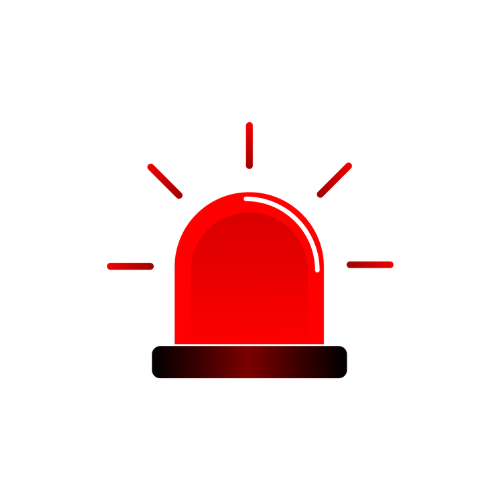Have you ever felt the overwhelming dread of a panic attack and wondered if there’s an effective way to keep it at bay?
You’re not alone. Severe panic attacks can strike unexpectedly, leaving you desperate for a solution. But rest assured, there are proven techniques for immediate panic attack relief that can help you regain control in those critical moments. This article will take a holistic approach to addressing severe panic disorder treatment. We’ll cover immediate coping strategies, understanding the condition, seeking emergency anxiety support, and adopting preventive self-care measures.
Quick Recommendation: Our blog is filled with tips and tricks to overcome anxiety and panic attacks. If you’re seeking a Proven Panic Attack Treatment, we recommend Panic Away.
Understanding Panic Attacks: What You Need to Know
Panic attacks can hit you hard and fast, making you feel scared and out of control. It’s important to know the signs of panic attacks to help manage them. These signs include a fast heartbeat, sweating a lot, and fear of losing control. These symptoms can be tough and upsetting, but knowing them can make it easier to handle.
What causes panic attacks can be different for everyone. Stress from work, personal life, or money problems can be big factors for some. Others might find that their genes play a part. Knowing what causes your panic attacks can help you spot your own triggers. This way, you can try to avoid or deal with them better in the future. Being aware of your triggers lets you take steps to prevent attacks and get the right help.
Proven Techniques for Immediate Relief from Panic Attacks
When you’re facing panic attacks, knowing how to reduce anxiety fast can help a lot. Deep breathing is a strong method for calming down. It works by focusing on your breath to soothe your nervous system and lessen panic symptoms. Try breathing in deeply through your nose for four seconds, hold it for seven, then breathe out slowly through your mouth for eight seconds.
Practicing mindfulness is also great for handling panic attacks. It keeps you in the moment, easing anxiety. You can focus on what’s around you, your body’s feelings, and your breathing. This creates a calm space where panic doesn’t feel so bad.
Grounding techniques are also helpful for managing panic attacks. They use your senses to bring you back to the present. A good exercise is the “5-4-3-2-1” sensory tool. Notice five things you see, four things you touch, three sounds you hear, two smells you notice, and one taste you can identify. This helps shift your focus from panic to your surroundings.
Using quick ways to reduce anxiety for panic attacks means you always have tools ready. Whether it’s deep breathing, mindfulness, or sensory grounding, these strategies can give you fast relief from panic attacks.

Severe Panic Attack Help: When to Seek Professional Assistance
Dealing with severe panic attacks means knowing when to get help. If panic attacks stop you from living your life, it’s time to seek help. Signs you need a mental health expert include frequent attacks, fear of the next one, or trouble doing everyday tasks.
If you’re in these situations, talking to mental health experts can really help. Professionals like psychologists, psychiatrists, or counselors offer therapy for panic disorders. They use methods like cognitive-behavioral therapy (CBT) and medication, which work well for severe panic attacks.
Remember, asking for help is a big step towards better mental health. With the right support, you can learn to manage and beat panic disorders.
Quick Recommendation: Our blog is filled with tips and tricks to overcome anxiety and panic attacks. If you’re seeking a Proven Panic Attack Treatment, we recommend Panic Away.
Self-Care Strategies to Prevent Future Panic Attacks
Long-term strategies are key to cutting down panic attacks. Regular physical exercise is a top way to stop panic attacks. Activities like walking, gym workouts, or dancing can lower anxiety.
Eating well is also important. A diet full of fruits, veggies, lean meats, and whole grains boosts your mental health. Getting enough sleep also helps keep your mood stable and anxiety low.

It’s important to watch how much caffeine and alcohol you drink. These can make anxiety and panic attacks worse. Instead, try calming teas like chamomile or peppermint.
Adding stress management like yoga or meditation to your day can change everything. These activities help you stay calm and reduce anxiety. Keeping a mood journal is another great way to track your feelings and progress.
Finally, having a support network is crucial. Being around people who understand you, or joining support groups, can offer emotional support. By using these self-care tips, you can work towards a life free from panic.
Conclusion
You now have a strong toolkit for managing severe panic attacks. This includes immediate relief techniques, self-care strategies, and knowing when to seek professional help. It’s important to understand that panic attacks are tough but can be handled.
Methods like breathing exercises, grounding techniques, and mindfulness can help right away and over time. If your symptoms are severe or don’t go away, don’t hesitate to get help. Experts like therapists, counselors, and doctors can offer personalized support.
Knowing when to ask for help is a big step in getting better from panic disorders. It helps you take control of your mental health. With the right support and strategies, you can find peace and stability again.
Whether it’s through self-care or professional help, every step you take moves you closer to a life free from panic attacks. Stay informed, stay proactive, and believe in your ability to beat these challenges. Your journey to a calmer, more secure life is possible.
Quick Recommendation: Our blog is filled with tips and tricks to overcome anxiety and panic attacks. If you’re seeking a Proven Panic Attack Treatment, we recommend Panic Away.

